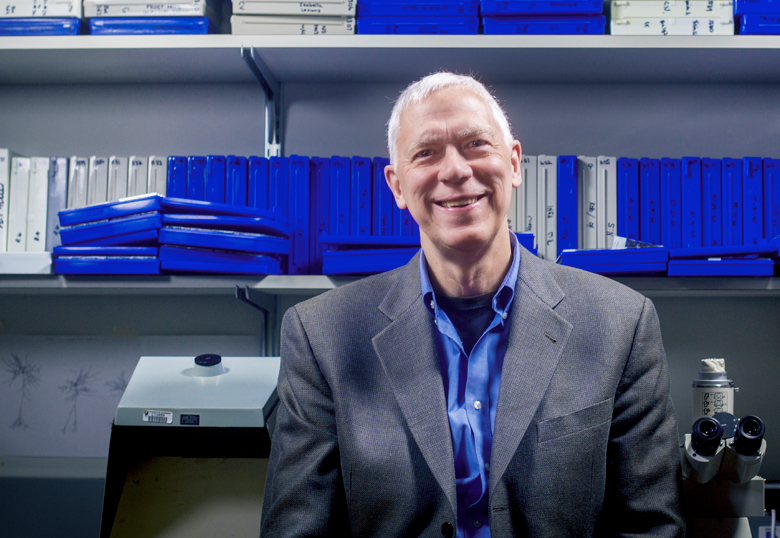The University of Lethbridge Senate is pleased to announce the first of its 2016 Honorary Degree recipients – alumnus and leading neuroscientist Dr. Terry Robinson (BASc ’72).
“Dr. Robinson has distinguished himself throughout an exceptional research career that has seen him revolutionize our understanding of drug addiction and how drugs affect the brain,” says University of Lethbridge Chancellor Janice Varzari. “As a respected alumnus, he is also an outstanding ambassador for the U of L and we’re very pleased that he has accepted our offer of an Honorary Degree.”
The University will present Dr. Robinson with the degree of Doctor of Science, honoris causa, at the Spring 2016 Convocation Ceremony I on Thursday, June 2, 2016 at 9:30 a.m. in the 1st Choice Savings Centre for Sport and Wellness.
Dr. Terry Robinson
One of the world’s leading neuroscientists, Robinson has transformed the study of addiction neuroscience, focusing his lab’s work on studying the repeated use of psychostimulant drugs, the behaviors they produce and long-term changes they can cause in the brain.
Following his bachelor’s degree studies at the U of L, Robinson earned a master and PhD in physiological psychology from the University of Saskatchewan and Western University, respectively. He went on to post-doctoral training at the University of California at Irvine before accepting a faculty position at the University of Michigan, where he has been teaching and leading a research program since 1978.
Robinson has published more than 200 scientific articles in peer-reviewed journals and he’s listed by Thomson Reuters/ISI Web of Science as one of the world’s most highly-cited neuroscientists.
Introduced to neuroscience through a physiological psychology course taught by the University’s Dr. Ian Whishaw, Robinson continues to collaborate with Whishaw and other members of the Canadian Centre for Behavioural Neuroscience, recently examining how function is maintained after loss of the neurotransmitter dopamine in an animal model of Parkinson’s disease.
